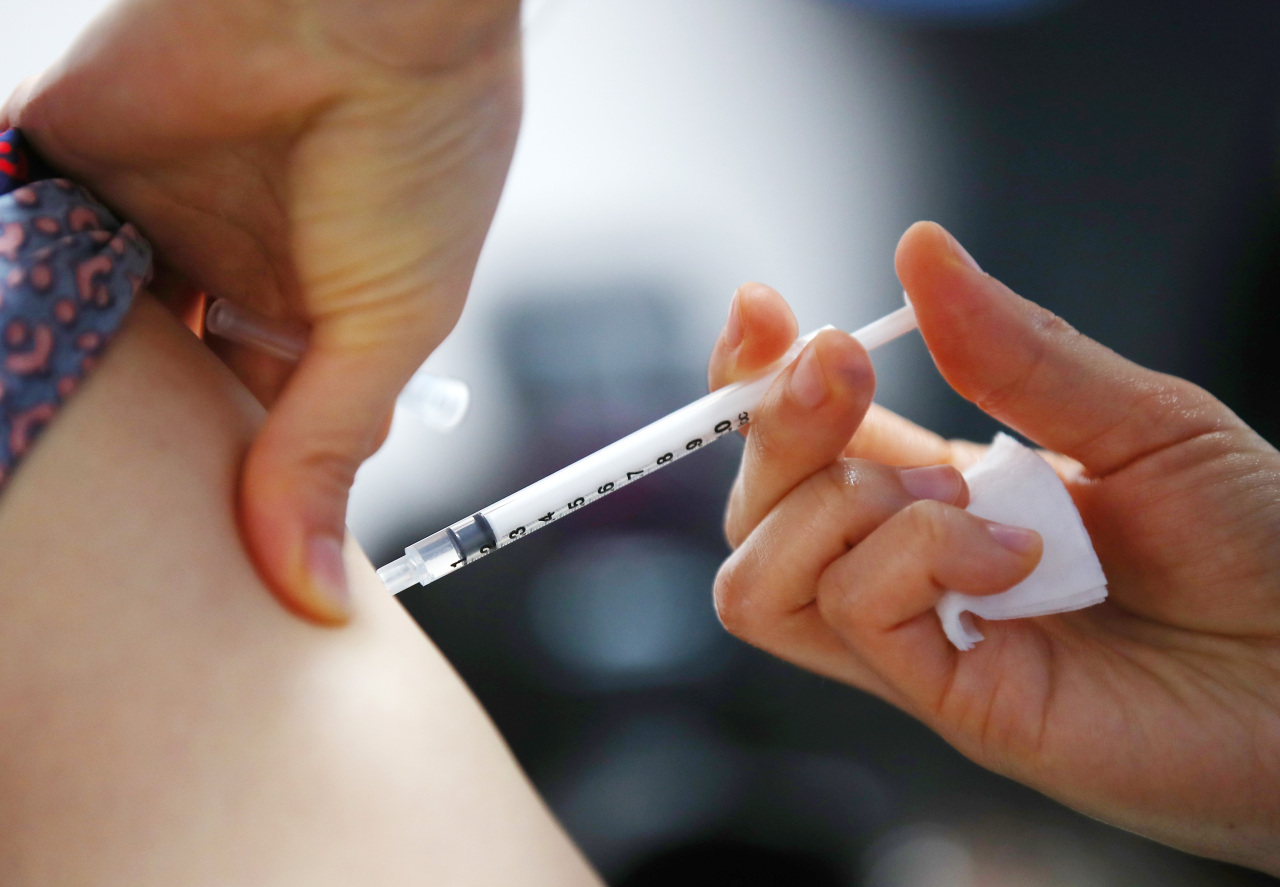More than 23,000 vaccinated as officials warn against fake news
New confirmed cases remain in the mid-300s for three straight days
By Shin Ji-hyePublished : March 2, 2021 - 14:58

Authorities on Tuesday have sounded an alarm over fast-spreading, false news about vaccines, as more than 23,000 doses of the vaccines have been administered.
The number of daily confirmed cases has remained in the mid-300s for three consecutive days. The country added 344 COVID-19 cases, pushing the total caseload to 90,372 as of Tuesday midnight, according to the government’s central response team. The number of new confirmed cases declined by 11 from the previous day.
Of the 344 cases, 319 were locally transmitted. Seoul accounted for 75 percent of the confirmed cases with 120, Gyeonggi Province had 111 cases and Incheon with 10.
Twelve confirmed cases were linked to a restaurant in Yeongdeungpo-gu, Seoul and another 16 were traced to a social gathering in Gwangjin-gu, Seoul. There were reported clusters from a daycare center in Dongducheon, Gyeonggi Province with 14 testing positive for the coronavirus, and a box manufacturing plant in Icheon where 22 people were infected.
National vaccination efforts have continued over the last four days. A total of 23,086 people have received shots, with 22,191 receiving vaccines from AstraZeneca and 895 from Pfizer. At least 156 people reported adverse reactions such as headaches, fever and nausea after receiving the inoculations.
But as the vaccination rollout is underway, fake news regarding the safety of vaccines has also spread on social media, prompting authorities to sound out warnings against false information.
President Moon Jae-in on Tuesday urged political parties and media outlets to be wary of fake news that stir up public anxiety and to cooperate with authorities for a stable vaccination rollout.
“The government will be responsible for the safety of the vaccines,” Moon said.
Prime Minister Chung Sye-kyun called for an urgent formation of the Korea Communications Standards Commission, which expired in January, to regulate fast-spreading fake news on vaccines.
“In order to quickly block fake news, the role of the commission is important. However, the formation has been delayed for more than a month due to disagreements between the ruling and opposition parties over the recommendation of the commission members,” Chung said.
Chung added that quarantine authorities and police are trying to eradicate false information that has cropped up recently, such as “coronavirus vaccines being made of embryos from abortion” and “those inoculated have seizures and turn into zombies.”
“Even if they are ridiculous, they are spread online to encourage distrust and anxiety,” he said.
According to a nationwide survey conducted by Seoul National University’s Graduate School of Public Health between Feb. 8 and Feb. 17 on 1,084 adults, 54.4 percent of respondents said vaccination is “everyone’s responsibility.”
Under the conditions that the safety of the COVID-19 vaccines have been verified and are administered for free, 30 percent of those polled said they would “receive the shots unconditionally” and 49 percent said they would “probably receive the vaccines.”
By Shin Ji-hye (shinjh@heraldcorp.com)
The number of daily confirmed cases has remained in the mid-300s for three consecutive days. The country added 344 COVID-19 cases, pushing the total caseload to 90,372 as of Tuesday midnight, according to the government’s central response team. The number of new confirmed cases declined by 11 from the previous day.
Of the 344 cases, 319 were locally transmitted. Seoul accounted for 75 percent of the confirmed cases with 120, Gyeonggi Province had 111 cases and Incheon with 10.
Twelve confirmed cases were linked to a restaurant in Yeongdeungpo-gu, Seoul and another 16 were traced to a social gathering in Gwangjin-gu, Seoul. There were reported clusters from a daycare center in Dongducheon, Gyeonggi Province with 14 testing positive for the coronavirus, and a box manufacturing plant in Icheon where 22 people were infected.
National vaccination efforts have continued over the last four days. A total of 23,086 people have received shots, with 22,191 receiving vaccines from AstraZeneca and 895 from Pfizer. At least 156 people reported adverse reactions such as headaches, fever and nausea after receiving the inoculations.
But as the vaccination rollout is underway, fake news regarding the safety of vaccines has also spread on social media, prompting authorities to sound out warnings against false information.
President Moon Jae-in on Tuesday urged political parties and media outlets to be wary of fake news that stir up public anxiety and to cooperate with authorities for a stable vaccination rollout.
“The government will be responsible for the safety of the vaccines,” Moon said.
Prime Minister Chung Sye-kyun called for an urgent formation of the Korea Communications Standards Commission, which expired in January, to regulate fast-spreading fake news on vaccines.
“In order to quickly block fake news, the role of the commission is important. However, the formation has been delayed for more than a month due to disagreements between the ruling and opposition parties over the recommendation of the commission members,” Chung said.
Chung added that quarantine authorities and police are trying to eradicate false information that has cropped up recently, such as “coronavirus vaccines being made of embryos from abortion” and “those inoculated have seizures and turn into zombies.”
“Even if they are ridiculous, they are spread online to encourage distrust and anxiety,” he said.
According to a nationwide survey conducted by Seoul National University’s Graduate School of Public Health between Feb. 8 and Feb. 17 on 1,084 adults, 54.4 percent of respondents said vaccination is “everyone’s responsibility.”
Under the conditions that the safety of the COVID-19 vaccines have been verified and are administered for free, 30 percent of those polled said they would “receive the shots unconditionally” and 49 percent said they would “probably receive the vaccines.”
By Shin Ji-hye (shinjh@heraldcorp.com)



















![[Today’s K-pop] Treasure to publish magazine for debut anniversary](http://res.heraldm.com/phpwas/restmb_idxmake.php?idx=642&simg=/content/image/2024/07/26/20240726050551_0.jpg&u=)